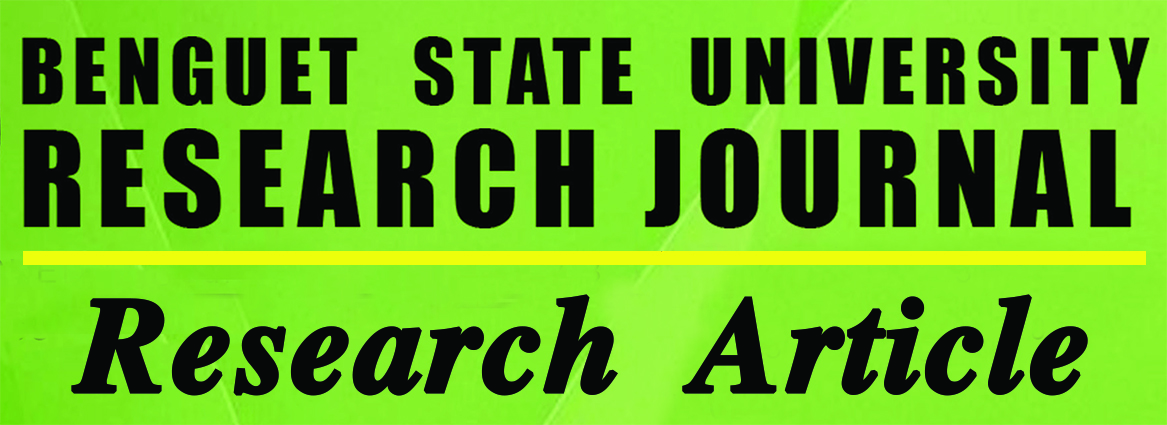Soil Quality Assessment of Conventional and Organic Farms in La Trinidad, Benguet
Main Article Content
Abstract
The study was conducted in La Trinidad, Benguet to compare the physical and chemical properties and microbial biomass of soils in conventional and organic farms. The physical properties of the soil analyzed were bulk density, aggregate stability and water holding capacity while the chemical properties were soil pH, organic matter, cation exchange capacity, phosphorus and potassium. Microbial abundance of bacteria and fungi was likewise determined.
Soil samples from nine vegetable gardens representing organic farms and three for conventional farms were collected.
The results show that the three organic farms have significantly better physical and chemical properties than the conventional farms. Among the nine sampling areas representing organic farms, the Benguet State University (BSU) Organic Agriculture Demo-farm had significantly better physical and chemical properties than the other two organic farms.
Likewise, microbial biomass was significantly higher in organic farms than in conventional farms. Among the three organic farms, the highest bacterial count was observed from the College of Agriculture-Department of Agronomy Organic Farm while the lowest was from the Climate-Smart Agriculture organic farm. For fungal abundance, Climate-Smart Agriculture organic farm has the highest while the lowest was observed from the BSU Organic Agriculture Demo-farm.

